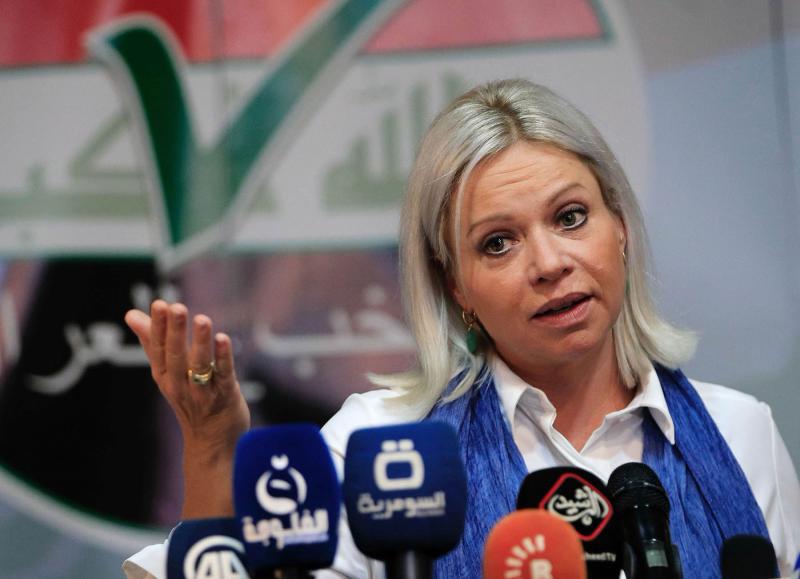“Iraq no longer needs the presence of the United Nations mission and we demand that it end its work”. That in a nutshell is the message sent by Iraq’s Prime Minister Muhammad Shiaa al-Sudani to the Secretary-General of the United Nations, Antonio Guterres, in a letter asking him to end the mandate of the United Nations mission, once and for all, by December 31, 2025.
Sudani pointed out that the reasons for the presence of a UN political mission in Iraq were no longer valid.
In a 2023 request for the extensions of the United Nations mission in Iraq for a year ending in May 2024, the prime minister had asked the UN to consider shortening the term of the mission.
The Iraqi decision means the imminent end of the mandate of the UN envoy to Iraq, Jeanine Plasschaert, and her departure from the country.
It is an implicit admission of the failure of the work of the organisation, even if it is too late to expose the transgressions committed by the mission during its work, as no one dared shed light on organisation’s corruption and collusion with successive Iraqi governments.
An investigative report published by The Guardian newspaper on January 22, 2024 revealed the extent of the corruption that plagued UN missions since they started working in Iraq after 2003, as well as their misunderstanding of the nature of their work within the Iraqi political system and the rejection of their interference in the internal affairs of the country.
Iraqis are aware of the extent of the corrupt dealings between the political system in power and the organisation. The facts of corruption did not leak out because everyone was in the same boat.
The Iraqis do not forget the negative role that Plasschaert played through events in Iraq and her attempts to exploit the country’s woes. The result is that everyone has been unhappy with her work.
But the main curse which has haunted Plasschaert dates back to 2015 when the Dutch Air Force erred during an air strike it carried out, as part of the international coalition’s operations against ISIS, killing 85 civilians, mostly children and women, in Hawija in the Kirkuk province.
At the time, Plasschaert was serving as minister of defence. The Dutch government was directly responsible for the negligence behind the bombing. But Plasschaert evaded accountability and the issue was buried. She was even subsequently rewarded by being tasked with leading the United Nations Mission to Assist Iraq (UNAMI), a position she has kept for many years.
The extent of corruption was revealed in even more glaring light when the Dutch press uncovered an investigative report in 2023 the loss or theft of 4.5 million euros allocated by the Dutch government to the victims of the Hawija massacre to compensate for the mistaken air strike. The money never reached the victims of the criminal strike.
The United Nations mission, which was established in Iraq after 2003, worked at the beginning out of an hotel in Baghdad. In August 2003, the site of the headquarters was destroyed in a suicide bombing, which killed 23 UN employees, including the Special Representative of the Secretary-General of the United Nations, Sergio de Mello. More than 100 others were wounded.
Fast forward to the situation today. Some describe the request to end the UN role in Iraq as a political decision that will increase the influence of the parties and elites holding power in Iraq. In the absence of an organisation monitoring developments in the country, it is feared the political actors will further flaunt the law. But the Iraqi decision, as conveyed in Sudani’s letter to the Secretary-General of the United Nations, spells out unequivocally Iraq’s desire to end the mandate of the UN mission, at any cost.
It remains to be seen how the UN Security Council, which supervises the work of the organisation, will respond to the Iraqi request, considering the possible use of veto power. Will Iraq be allowed to remove the constraints imposed by foreign interventions? More importantly, will there be a unified Iraqi decision without some of the parties, which are part of the government, objecting to it?
Before Plasschaert leaves the country, Iraqis would have wanted to receive an assessment of the work conducted for years by the UN mission, the good and bad.
A key question for which they want an answer: did the Iraq people benefit from the work of that mission?

